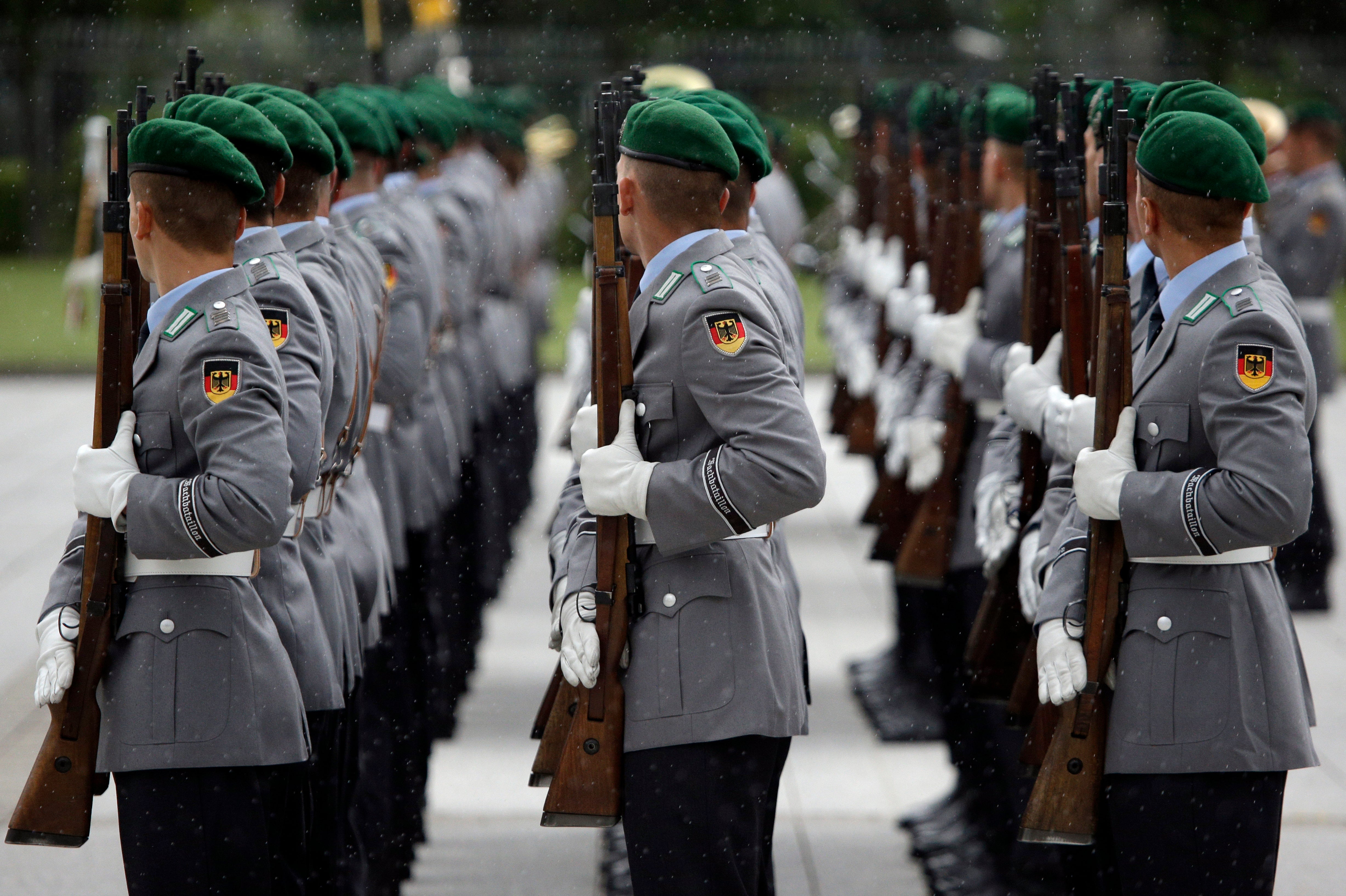Germany receives 178 compensation applications from gay servicepeople over discrimination
The German defense ministry says that it has received 178 applications for compensation from gay servicepeople who experienced discrimination in the military in the past

Your support helps us to tell the story
From reproductive rights to climate change to Big Tech, The Independent is on the ground when the story is developing. Whether it's investigating the financials of Elon Musk's pro-Trump PAC or producing our latest documentary, 'The A Word', which shines a light on the American women fighting for reproductive rights, we know how important it is to parse out the facts from the messaging.
At such a critical moment in US history, we need reporters on the ground. Your donation allows us to keep sending journalists to speak to both sides of the story.
The Independent is trusted by Americans across the entire political spectrum. And unlike many other quality news outlets, we choose not to lock Americans out of our reporting and analysis with paywalls. We believe quality journalism should be available to everyone, paid for by those who can afford it.
Your support makes all the difference.The German defense ministry said Tuesday that it has received 178 applications for compensation from gay servicepeople who experienced discrimination in the military in the past.
The ministry said in a statement that it had expected more applications, but that nonetheless “the goals of the law were achieved.”
A law rehabilitating gay soldiers who suffered discrimination came into force two years ago, and so far, about 400,000 euros ($438,000) has been paid in symbolic compensation, the ministry said.
The law was passed in 2021 after a study commissioned by the defense ministry and presented in 2020 documented “systematic discrimination” in the Bundeswehr — the military of West Germany and since 1990 of reunited Germany — from 1955 until the beginning of the 21st century.
While the German military stopped its policy of discrimination against gay soldiers in 2000, it took more than two decades to pass the law offering them compensation.
The law also offers compensation for gay soldiers who served in East Germany's National People's Army until Germany's unification in 1990.
The defense minister apologized for the discrimination against gay soldiers in the Bundeswehr at the time the study was presented.
The study found that “same-sex orientation was viewed as a security risk in the Bundeswehr until the turn of the millennium and made a career as an officer or noncommissioned officer impossible.”
In the past, soldiers were punished by military courts for consensual gay sex, dismissed, denied promotion or stripped of responsibility.
In its report on Tuesday, the defense ministry wrote that “the reconciliation of the affected soldiers with the Bundeswehr cannot be measured solely by the number of successful rehabilitation proceedings and the associated payments.” It stressed that in addition, “individual, appreciative communication and comradely attention are also just as much a part of this as the explicit admission by the Bundeswehr that injustice was done to those affected at the time.”
In recent years, Germany has tried to address past anti-gay discrimination in different ways. In 2017, parliament voted to annul the convictions of thousands of gay men under a law criminalizing male homosexuality that was enforced zealously in post-World War II West Germany.
Legislation criminalizing male homosexuality was introduced in the 19th century, toughened under Nazi rule and retained in that form by democratic West Germany, which convicted about 50,000 men between 1949 and 1969. Homosexuality was decriminalized in 1969 but the legislation wasn’t taken off the books entirely until 1994.